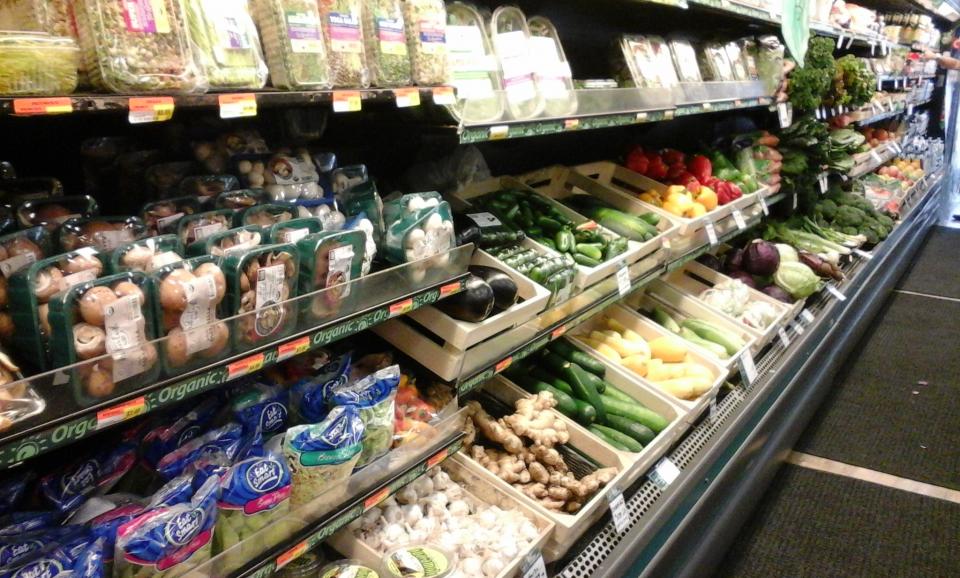Have you looked around your supermarket recently and noticed an increasing selection of organic offerings? Ten years ago most supermarkets assigned organic products to an ‘organic ghetto’. Today many of these same items now sit proudly next to their ‘non-organic’ counterparts.
But many consumers are still muddled as to what organic means – aside from purity and, maybe, no pesticides. Who in New Zealand decides what organic is? What does ‘certified organic’ mean? How does organic increase value around our export prospects?
Rick Carmont, executive director of the Organic Exporters Association of New Zealand notes that in New Zealand 70 percent of all our organic production is exported, whereas other countries export less than ten percent (with the exception of Canada at 15 percent).
The Ministry of Primary Industries (MPI) manages organic exports to more than 30 overseas markets under its Official Organic Assurance Programme (OOAP), which has been operating since 2002.
MPI’s OOAP Technical Rules are designed to provide the context for trade negotiations between the New Zealand government and destination markets, with an aim for organic equivalence agreements. For other markets, exporters work with in-market affiliates of the Organic Exporters Association to ensure they meet the organic regulatory requirements of the destination country.
The world certified organic market is valued at US$84 billion. The US is the largest at US$39 billion, followed by the EU at US$32 billion and Asia at US$13 billion. The New Zealand government keeps no official figures on the total organic trade in New Zealand but Organic Exporters New Zealand suggests it has passed the $400 million mark, with $120 million in domestic sales and $280 million in exports.
So, back to regulation. What is the problem anyway? Donald Nordeng, CEO at BioGro says there is a lack of a common or defined standard. This makes it difficult for domestic enforcement of organic claims. Enforcement is the key component to any regulation.
If the Commerce Commission isn’t able to actively enforce organic claims due to lack of common definitions, there isn’t any enforcement. Nordeng says a lack of a strong regulation means there isn’t a strong incentive to get certification, leading to confusion in the marketplace among retailers, media and consumers – further complicating the issue.
There are 86 countries today that regulate the sale and purchase of organics compared to just one market in 2001. New Zealand is one of the few OECD countries that has no organic regulations. Our major trading partners, including China, Korea, Japan, Taiwan, the US and the European Union, have all taken action and enacted specific organic production and labelling regulations. Put simply, following suit and implementing organic regulation here in New Zealand would significantly benefit our export prospects. Equivalency agreements that don’t include a structure to protect the certification claim of the imported product are less attractive. If a Korean or US exporter to New Zealand has to compete against uncertified claims, it isn’t a fair playing field.
Craig Deadman, Organic Exporters chairman, notes that China and Korea created organic regulations much later than many other countries. At the time, they sought input from New Zealand organic certifiers and operators as part of their regulatory development, as New Zealand had a good record and a high level of organic trade.
Earlier this year, a delegation from New Zealand visited the US with funding from the Trade Access Support Programme (TASP) of the Ministry of Foreign Affairs and Trade. The delegates’ mission was to advance the organic equivalence application that is currently between the US and New Zealand. The delegation identified that there were challenges presented by the lack of organic regulation in New Zealand, compared with the mandatory standard in the United States. If New Zealand had organic regulation in place domestically, equivalence between New Zealand and the US (one of our biggest export markets) would be easier.
A matter of time
New Zealand’s organic sector is currently working with the Ministry of Business, Innovation and Employment (MBIE) and MPI to implement organic regulation domestically.
It has been a long and considered process. New concepts, discussions and plans are now in place that endeavours to deliver many benefits to New Zealand consumers and organic exporters. The Organic Exporters Association believes organic regulation will happen here in New Zealand. It is just a matter of when.
Until then, next time you’re in your favourite supermarket, pick up that organic product and make sure it carries a certification logo and information. If it doesn’t it’s not organic!
Article supplied by the Organic Exporters Association of New Zealand. www.organictradenz.com





